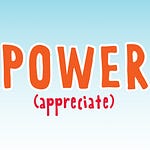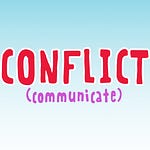Abbie: Hello and welcome to the CosmoParenting Podcast brought to you by the CMM Institute for Personal and Social Evolution. In this space, we invite you to see yourself as someone who is curious about and actively participating in creating your own meaning around parenting.
This is our ‘Validate’ episode, where in the second episode of each month we hear a parenting story, with the hope that sharing the first hand experiences of others who are parenting can make you feel seen and validated in your own experiences. Let’s begin.
*music*
Abbie: Today I am joined by the President and one of the Co-Founders of the CMM Institute, Kim, and her son, Dan. Hello, Kim and Dan!
Kim: Hi, Abbie.
Dan: Hi, Abbie.
Abbie: I’m so glad to have both of you here. As you know this our relationships theme and we’re really emphasizing that relationships are co-created by the people within them. So, it’s so wonderful to have both of you here to help us understand that. So, with that in mind, let’s dive right in. Kim and Dan, please share your story with us.
Dan: Thank you, Abbie. I would summarize the relationship with my mom and with Barnett as a really intentional relationships even from the beginning. So, one of the things that I kind of conceptually, I think, understood from my parents at a young age, but the older I get really start to hit more home for me, is that words matter.
Especially, as you know, it’s really difficult to raise children. Probably very difficult to raise me. I don’t think I was an easy child to raise at a lot of times. One of the things that really struck me, even at a young age, was the intentionality that you had going into a situation and really trying to understand what we wanted to get out of it.
Instead of just being reactive, kind of taking a step back and thinking, what do we want to get out of this? What is the kind of relationship that we want to have? What is the outcome that we want to have? And then using words to really accomplish that. And I think that was really unique. And it's something that I really value and take into my relationships, you know, in my adult life as well.
Abbie: I'm curious, Dan, is that looking back something you feel that you're able to see or in the moment, can you put yourself back into childhood, were you aware of that this was unique, maybe something your friends’ parents weren't doing?
Dan: It's a good question. I think a bit of both. I think I did realize that it was different than what some of my friends' parents did as far as their relationship. I remember being frustrated at times with my parents because they were so intentional sometimes about situations when I was just being a moody teenager and maybe just wanted to, you know, storm off to my room and not talk about things or be intentional. So yes, I did understand that in the moment, but especially the older I get and I see other people interacting with their families and family dynamics, just how unique the situation was within our own family. And I grow more and more appreciative by the day for what my mom and what Barnett had built.
Kim: I remember Dan coming home from college as a freshman and for the first time, he said, I really appreciate the way you two have raised me. And I think being away from home, you know, away from our family pattern and our family dynamic and meeting other people right from very different places and in different family situations.
I'll give an example of this intentionality that Dan is talking about. You know, Barnett and I, we try to actually practice what we believe about how families get made. And that is one conversation at a time and thinking about what is it that we're trying to make as a family. And for us, we wanted to make a family and a situation where Dan knew that he was loved, but that Dan also became a good human being and that he would take responsibility for the kind of person he was because we were not the kind of parents who were like hovering. We knew that he needed to make his own decisions.
Well, when he was not even able to drive because we actually drove him to a prom, he had a duffel bag. He was spending the night with a friend. He had a duffel bag. He put it in the trunk. And then we went to the house of the friend and he went to get his friend. And we saw that there was something in the back seat that needed to go in the duffel bag. And so while he was in the house with his friend, we opened the duffel bag and there was a bottle of vodka. And so now we have this moment, right, where as parents, you have a big decision point. What are you going to do? We could have held the bottle of vodka and said, you're not going to the prom. I can't believe you're doing this. We could have told him you're going to the prom, but you're going to be grounded for the next month. I mean, there are a number of things we could have done. What we decided to do was we pulled the bottle. We didn't let him know. We knew he was going to find out when he opened the bag and realized that the vodka wasn't there. And we wanted him to have a good time, but we also wanted to make sure that this would be an important teaching moment for him.
So when he came back the next day, we had the bottle on the table and we sat down and I pulled out a sheet of paper, a blank sheet of paper, and I wrote our family tree on this paper because on my dad's side of the family, almost every single male has died of alcoholism.
And so here is Dan, part of that genetic lineage, who I know could have a predisposition toward alcoholism. And I also knew that we would not be able to follow him around. He was going to make his own decisions. And so I wrote this out and both Barnett and I said, we want the best for you. We want you to make good choices. We know that you're in this experimental phase of your life and you're going to want to experiment but you need to know this about your family. And we just laid it out and said, we're not going to follow you around. But we also want you to know that if you continue at your age to drink heavy alcohol or decide that you want to experiment with things like that, there is a very high probability that you will end up becoming addicted. And that's what we did.
Dan: I have no recollection of acting that way in the past.
Kim and Dan: Hahaha.
Dan: I'm just kidding. No, I remember that. I remember that very well. And it's a great example, mom, because you're right. I remember when you wrote that out the next day and we went through our family lineage. It's true.
There are lots of different ways to approach a situation like that. And I think probably the natural and automatic reaction is to yell or to get angry and to scream. And everybody's different, but I imagine most people, I definitely, would have gotten defensive probably or not wanting to open up to that or be receptive and push me further away in the other direction. But by actually sitting down and calmly speaking to me about our family history and what this could lead to, it was a way for me to process the seriousness of the situation, to kind of understand the bigger picture. This isn't just about one night at the prom and, you know, having fun with your friends. It's creating a pattern that can lead to bigger things down the road.
And it was really eye opening. And it was a way to kind of enter into a dialogue and a conversation that I think not many people did, especially for a 15 year old, you know, and so I was so grateful that you approached it that way and kind of invited the conversation for us to enter in together and really come to a conclusion for something that was pretty serious. And it did hit home. It hit home in, I mean, that way that you approached it hit home in a way that would have been much different than if you yelled and screamed or grounded me or something like that. So I remember that situation well.
Kim: I don't know if you remember this. When we had the vodka on the table, what Dan said is, well, that wasn't mine. I got it for my friend. And that's sort of another moment as a parent, right? Where you can challenge that, which like we knew, no, it wasn't for a friend. Like you guys, you were going to drink it. But we didn't challenge it because we knew that that would lead to probably an argument. And that's not what we wanted to make. What we wanted to make was a conversation about the seriousness of this. And the relationship was much more important to me than scolding or grounding or yelling or any of that.
Abbie: Yeah, I'm hearing a lot about choices in this story. And that's such a great testament to you get what you make in these relationships. And a great reminder to, I hope, other parents, maybe dealing with these things right now can hear and be reminded that they also have choices.
Kim: Yep.
Abbie: Well, thank you both so much for sharing your story and your relationship today.
Kim: Thank you, Abbie. Thanks for having us.
Dan: Thank you, Abbie.
Abbie: Yeah. And to everyone listening, thank you for joining us, too. Don’t forget to check out www.cosmoactivities.com for our other resources in this series and be sure to comment on this podcast episode on the CosmoParenting Substack. We are so grateful to be on this journey with you. And we will see you next week to explore some parenting best practices.
*music*












Share this post